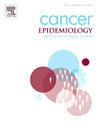Depressive disorder among gynecologic cancer survivors in the US: Evidence from the 2020 Behavioral Risk Factor Surveillance Survey
IF 2.4
3区 医学
Q3 ONCOLOGY
引用次数: 0
Abstract
Objective
Patients with gynecologic cancers demonstrate different psychosocial outcomes based on their cancer site, which may affect treatment effectiveness and survivorship. Demographic differences and the relation with depression (DP) among women who have a gynecologic cancer diagnosis are not well understood.
Methods
To assess whether survivors of gynecologic cancer had a greater risk of DP compared with women with and without a history of cancer, 2020 BRFSS data was utilized. Pearson chi-square and multivariable logistic regression were conducted to obtain adjusted odds ratios.
Results
Prevalence of DP was 20 % higher among survivors of gynecologic cancer; this was consistent across race/ethnic and urban/rural categories. Odds of DP among gynecologic cancer survivors were 2.5xs those without any history of cancer. Among Black and Hispanic gynecologic cancer survivors, the adjusted odds of DP were 4.5 and 3.2 times those with no cancer or a history of any cancer.
Conclusions
The odds of having DP were significantly higher among gynecologic cancer survivors compared to women without any history of cancer, breast cancer survivors, or survivors of other cancers.
美国妇科癌症幸存者的抑郁症:来自2020年行为风险因素监测调查的证据
目的妇科癌症患者的心理社会结局因癌症部位的不同而不同,这可能影响治疗效果和生存率。在诊断为妇科癌症的妇女中,人口统计学差异及其与抑郁症(DP)的关系尚不清楚。方法为了评估妇科癌症幸存者与有或无癌症病史的女性相比是否有更大的DP风险,使用了2020年BRFSS数据。Pearson卡方和多变量logistic回归得到校正后的优势比。结果妇科肿瘤幸存者DP患病率高20 %;这在种族/民族和城市/农村类别中是一致的。妇科癌症幸存者患DP的几率是无癌症病史者的2.5倍。在黑人和西班牙裔妇科癌症幸存者中,调整后的DP几率是无癌症或有任何癌症病史者的4.5倍和3.2倍。结论:与没有任何癌症病史的女性、乳腺癌幸存者或其他癌症幸存者相比,妇科癌症幸存者患DP的几率明显更高。
本文章由计算机程序翻译,如有差异,请以英文原文为准。
求助全文
约1分钟内获得全文
求助全文
来源期刊

Cancer Epidemiology
医学-肿瘤学
CiteScore
4.50
自引率
3.80%
发文量
200
审稿时长
39 days
期刊介绍:
Cancer Epidemiology is dedicated to increasing understanding about cancer causes, prevention and control. The scope of the journal embraces all aspects of cancer epidemiology including:
• Descriptive epidemiology
• Studies of risk factors for disease initiation, development and prognosis
• Screening and early detection
• Prevention and control
• Methodological issues
The journal publishes original research articles (full length and short reports), systematic reviews and meta-analyses, editorials, commentaries and letters to the editor commenting on previously published research.
 求助内容:
求助内容: 应助结果提醒方式:
应助结果提醒方式:


